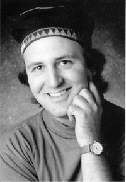POETRY PHYSICAL PLEASURE (possible opening of a book)
To Louis Zukofsky’s definition of the value of poetry as the experience of pleasure through “sight, sound, and intellection,” I would add another quality, that of tactile physical pleasure. Related to sound, but located in the pleasure of producing sound rather than hearing it. The addition of physicality leads us to start somewhere near the beginning, at least of poetry in English – and though I might venture with little cat feet into Chinese, French, Italian, Greek, Roman, Russian, Spanish, and other poetries – I will remain primarily with English, simply because it is what I know best, though I carry no illusion that its poetry is even one iamb better than that written in any other language.
To the beginning we go, and to physical pleasure.
Hwaet we gardena (first line of Beowulf, circa 680-800)
You don’t have to know what that means, although it helps to know it is a kind of boastful greeting, said with gusto, that the “ae” of Hwaet should be pronounced like the short “a” of drat or gnat, that the “Hw” should literally be sounded, like a wind blowing until it closes in that “w” sound, that the word “we” is pronounced more like the contemporary “way” than like “we” as in us, that the “r” in “gardena” should be slightly rolled, and the first syllable of “gardena” should be a noticeably longer syllable than any other in that word, the “de” in “gardena” should be spoken like “day” but cut off just a bit short, and the final “na” should sound like the final “na” in banana. Now, say it all, first slowly, “Hwaet we gardena,” then again and again, each time a bit faster (but more with confidence than with speed), until you say it as if you are greeting a friend who has come into the very friendly pub in which you like to down a pint now and then and have a very good time. Feel what your lips do at the beginning to both produce and cut off that wind, how the tongue slaps inside the mouth on that first “t”, how you go to the back of the mouth at the beginning of “gardena” but then come up toward the front to roll that “r”and then just stop, neither too suddenly nor with too much lingering, as you let out that short exhalation of “na.” If it doesn’t feel good to say, you’re either not doing it right, or you haven’t considered that speech is a physical pleasure, related to kissing, breathing in cool air, cooing, whistling, oral sex, licking a popsicle, and other great things you can do with your mouth.


0 Comments:
Post a Comment
<< Home